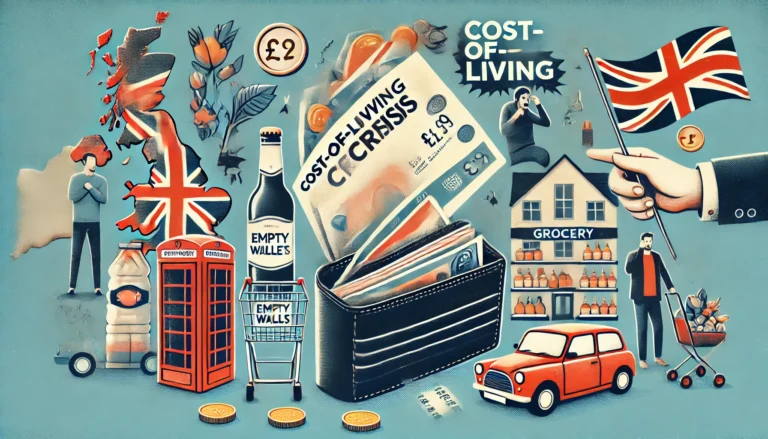The UK is facing a severe cost-of-living crisis, with rising energy bills and food prices affecting millions of people. The crisis began in late 2021 and has continued to worsen, with the cost of everyday essentials like energy and food rising much faster than average incomes.
Causes of the Crisis
The crisis is caused by a combination of global and local factors, including the COVID-19 pandemic, Russia’s invasion of Ukraine, Brexit, and labor shortages. The Bank of England governor, Andrew Bailey, has stated that about 80% of the causes driving the cost-of-living crisis are global.
Effects of the Crisis
The crisis has had a significant impact on households, particularly low-income households. The Institute for Government defines the UK’s cost-of-living crisis as “the fall in real disposable incomes (that is, adjusted for inflation and after taxes and benefits) that the UK has experienced since late 2021.” According to a survey by the Food Foundation think tank, one million UK adults went a whole day without eating over the past month.
Government Response
The UK government has responded to the crisis with various measures, including a £5 billion windfall tax on energy companies to help fund a £15 billion support package for the public. The package includes every household getting a £400 discount on energy bills, which would be in addition to a £150 council tax refund the government had already ordered. For about 8 million of the UK’s lowest-income households, a further £650 payment was announced. Civil and Political Response
Various campaigns, such as Don’t Pay UK, have been established to encourage the government to implement further assistance. The campaigner Jack Monroe warned that the crisis could be fatal for some of the children of low-income parents and asked the government to increase benefits in line with inflation. UK civil society continues to respond to the hardship caused by the cost-of-living crisis, such as by running food banks.
Conclusion
The UK’s cost-of-living crisis is a complex issue with far-reaching consequences for households across the country. While the government has taken some measures to address the crisis, more needs to be done to support those affected. As the crisis continues to evolve, it is essential to monitor its impact and respond accordingly.

